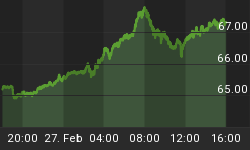These internet giants have become household names in their China homeland pretty much like Amazon, Facebook, Google and Netflix are here in the U.S. The two groups of stocks are listed on U.S. exchanges where they have established reputations as monoliths of performance.
But that's probably where the similarities end.
Whereas Americans are able to directly own FAANG stocks as well as their Chinese peers through Chinese ADRs, Chinese residents have no way whatsoever to own a slice of U.S.-listed Alibaba, JD, Baidu or Weibo because their government prohibits its citizens from participating in U.S. stock markets.
Naturally, Chinese residents must have spent years feeling short-changed after watching the success of these companies. The Chinese love hot tech stocks just as much, if not more, than American investors. It's the reason why tech stocks listed on Chinese exchanges trade at considerably richer valuations compared to the likes of Alibaba or Baidu back in the U.S.
But that might be about to change.
Enter... CDRs
China's market regulators have reconsidered their hardline stance. They have been working on new regulations that will spread the benefits of the global success of U.S.-listed Chinese stocks like Alibaba and Baidu.
Specifically, the Shanghai and Shenzhen stock exchanges have drafted detailed rules that will enable these firms to start trading at local bourses in the current year through Chinese depositary receipts, or CDRs. CDRs are the Chinese version of American Depositary Receipts (ADRs)--securities that have allowed American investors to invest in non-U.S. equities for decades.
So what has triggered the sudden benevolence by the self-serving government?
Apparently, Beijing has become alarmed by the high number of top tech Chinese companies that are listing outside the country. There are nearly a hundred Chinese companies listed on official U.S. exchanges and nearly 200 more available in OTC (Over the Counter) markets.
That's definitely more power to the Chinese. Related: Why We Should Be Worried About Europe’s New Copyright Laws
CDRs, however, might complicate the game for an already volatile Chinese market.
CDRs Could Mean Extra Volatility
ADR securities are fully fungible with their underlying shares. This in effect means that brokers can create or delete them depending on market demand. The biggest advantage of this kind of arrangement is that ADRs always trade in-line with the price of their underlying shares since traders would take advantage of any divergence in price through arbitrage.
CDRs, on the other hand, will not be fungible with their underlying shares. This in effect means that they will trade as an entirely new class of stocks.
For instance, Chinese smartphone giant Xiaomi will IPO in July in a process expected to raise $10 billion. The company will also issue CDRs worth $3 billion in Chinese markets. The supply of CDRs will be inflexible and not responsive to market demand. This is likely to create huge pent up demand, which will result in large price discrepancies and arbitrage opportunities between Chinese markets and those in offshore locations.
This kind of situation is not only likely to introduce extra volatility in an already volatile market but could also induce the formation of bubbles.
Chinese Stocks Still Hot
U.S.-listed Chinese stocks, however, remain hot.
The stocks have gone through a period of erratic peaks and troughs since their debut on U.S. exchanges about a decade ago. A couple of years ago these stocks were mostly out of favor due to deep concerns about a possible hard landing for the red-hot Chinese economy as well as numerous accounting scandals by public Chinese companies.
But investor appetite for Chinese ADRs has finally bounced back with stocks in the space matching or even outperforming their American counterparts.
The broad-market iShares MSCI China ETF has beaten the S&P 500 in the year-to-date with a return of 4.4 percent vs. 3.8 percent. Meanwhile, the much ballyhooed FANG stocks have underperformed their Chinese equivalent with AdvisorShares New Tech and Media ETF (FNG) flashing a 5.4 percent YTD return compared to 12.8 percent by the KraneShares CSI China Internet ETF (KWEB).
But with CDRs looming, Chinese stocks might face increased volatility in the near-future.
By Alex Kimani for Safehaven.com
More Top Reads From Safehaven.com:
















